A couple of days ago I listened to a podcast from the Academic Agent aka Dr Neema Parvini the title of which was What if Everything You Know About Stalin Is a Lie. To cut the story short, an American academic has written a book, having had access to the archives of the Soviet Union, in which he posits that ‘Stalin the Monster’ is all the invention of Leon Trotsky, the master of propaganda and purveyor of fake news. Historians, politicians and commentators in the West took it up and the rest, to use the old cliché, is history. Parvini plans a follow up podcast with the author to which I am very much looking forward. It should be fascinating.
Anyway, as we know on the subject of lies, the biggest whoppers, repeated often enough, eventually become the truth. It made me think about the lies we have been told by our establishment, which is to say, our elites. The awakening I have undergone since 2020 continues to meander in all sorts of different directions but occasionally something brings me up short as if I’ve been struck by a thunderbolt. More of that later, but first, let us consider what we mean by the word ‘elites’.
I think we are going to have to find another name for them. An on-line dictionary describes the usage of the word this way: Elite (noun) 1. A group or class of persons considered to be superior to others because of their intelligence, social standing or wealth or; 2. The best or most skilled members of a group or; 3. A special group or social class of people who have a superior intellectual, social or economic status as the elite of a society.
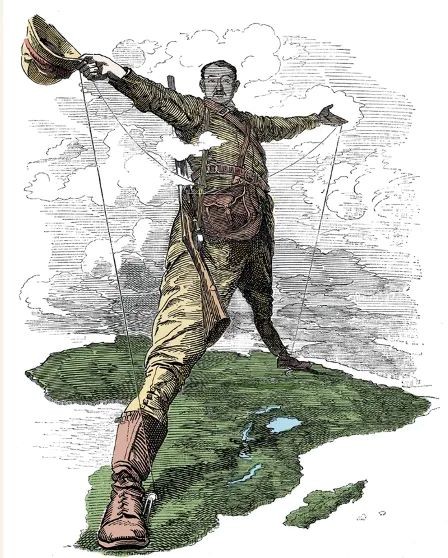
These definitions do not describe the nature or size of the group within which an elite might exist, so we have to clear that up. We’re not talking about an association of philatelists or lepidopterists here. We’re talking about family, clan, tribe and nation and how the petty arguments about the division of food and resources necessary for continued existence and flourishing might be decided. For too long, we have left that in the hands of our so-called ‘elites’.
Who these days feel comfortable with that? We have an ‘elite’ made up of bankers, financiers, industrialists, some members of the traditional aristocracy, their bought-and-paid-for academics, politicians, lawyers and celebrity influencers whether they be entertainers or sports people. They are, for the most part, educated at the same schools and universities and so fall under the influence of the same pedagogues. They all know each other to a greater or lesser degree and attend the same social functions.
Who are these people? Well, in the case of the aristocrats they’ve been around since 1066 in one form or another, but the bankers, financiers and industrialists are obviously much more recent. Some may have emerged from the Celto-Anglo-Saxon-Scandi-Norman soup, but many will have washed up on these shores at significant times in our history. One thinks of Oliver Cromwell allowing Jews back into England during the Protectorate in the 17th Century after they had been kicked out by Edward I in the 13th Century or the money men who arrived from Amsterdam in the wake of William of Orange.
There are intriguing theories about who really rules the World. Some say they have their origins with the members of the Praetorian Guard which provided the Roman Emperor with not only a bodyguard but also a counter-intelligence force until they became too much of a power-broking, Emperor-choosing, murder and protection racket for the Emperor Constantine to endure. He vanquished them at the Battle of Milvian Bridge in AD 312 and banished them from Rome. It is said they went to the swamps of the River Po thence to the nascent Venice where they became merchants and bankers. Others say that they are the ‘Black Nobility’ representing the Papal bloodlines down through the centuries while others again say that their roots go far back into pre-biblical times in Mesopotamia and they are today the descendants of thirteen bloodline families which control everything in the world from behind a veil of secrecy.
I don’t much care which theory people cleave to because, if any or all of them is true, we don’t really know who they are. We only know who is presented to us as the heads of nation states and their administrations, financial institutions, judiciaries, industries and the major supra-national organisations. There are naturally armies of willing helpers beneath them, but it is thought that the people really pulling the strings amount to no more than 6,000 to 8,000 in the entire World. Whatever the truth is, it is undeniable that there is a money power which controls the governments of the nation states, and it always gets its way. It makes the act of voting at elections pointless.
A few months ago, I posted The Beginnings here and here. I referred in it to John Ruskin and the impression he made on Cecil Rhodes, who is caricatured at the top, which became a powerful motivation for Rhodes’s empire-building. Rhodes founded a secret society with Lord Esher and William Stead dedicated to the extension of British rule all over the World and the recovery to the Empire of the United States. They were joined by Alfred Milner, Lord Nathaniel Rothschild, Lord Roseberry, Earl Grey and few others. Rhodes, aware that his life would be short, produced several wills with codicils and named members of his secret society as trustees. The Rhodes Scholarship scheme is one of the resulting creations which is not so much a philanthropic educational scheme, more a recruitment instrument for the elite.
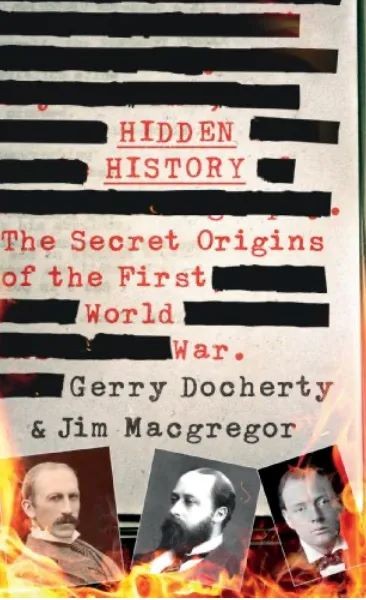
This is all recounted in Hidden History, the Secret Origins of the First World War by Gerry Docherty and Jim McGregor who coined the term ‘Secret Elite’ for Rhodes’s group. After Rhodes’s death, the ‘Secret Elite’ carried on with Alfred Milner growing the organisation and growing its global power. The following diagram, taken from Hidden History shows the extent and detail of the Secret Elite’s control and connections with Milner at the centre.
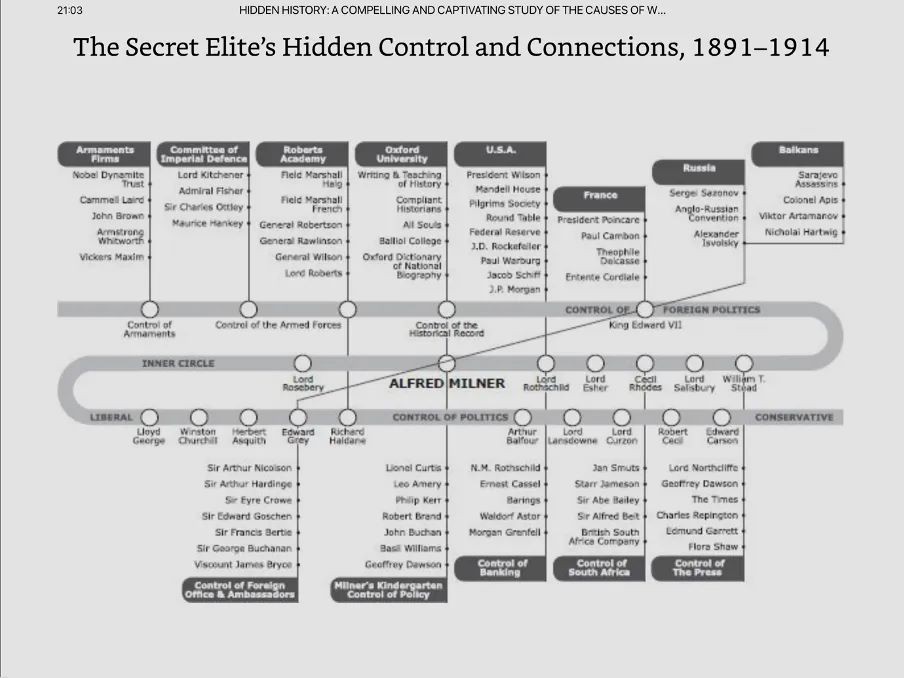
The Inner Circle comprises Milner, Rhodes, Lords Roseberry, Rothschild, Esher and Salisbury and William T Stead. Milner, who was also a devoted disciple of John Ruskin, oversaw the control of politics and the control of the historical record through his influence at All Souls and Balliol Colleges in Oxford. Through compliant historians, he made sure the history was recorded as he wanted and taught as he wanted. Milner’s “Kindergarten” was set up to develop and control policy under his direction no matter which party was in government. In the Control of Politics, we see the leading lights of both the Liberal and the Conservative parties. In 1905, the Liberals H H Asquith, Edward Grey and R B Haldane, who were Liberal imperialists, set out to gain control of their party. It was known as the Relugas Compact. Having learnt from Balfour’s Conservatives, they did this by having the leader and prospective Prime Minister, Henry Campbell-Bannerman, side-lined by refusing to serve in cabinet with him unless he went to the House of Lords, allowing Asquith, as Chancellor of the Exchequer after the election, to take control of the party in the House of Commons. Asquith soon became the Prime Minister. In this way, Alfred Milner and his associates came to control Foreign, Imperial and domestic policy whichever party was in government.
The diagram also shows us the connection to the United States through Lord Rothschild who controlled banking; the control of foreign policy towards France, Russia and the Balkans through Milner and Grey and involving King Edward VII who detested his nephew, Kaiser Wilhelm II. He was a noted Francophile who initiated the Entente Cordiale which soon became the Triple Entente with the inclusion of Russia and then Italy to complete the encirclement of Germany. The other ‘benefit’ to Britain of the Entente was a staying of the hand of Russia through French influence. The planned control of Africa, initially just South Africa, was Rhodes’s original project.
Milner so arranged his succession that this Secret Elite continued long after his death in 1925 and it may well still be operating today but with different aims. Pending evidence of earlier connivance, in Milner we have the prime architect of the ‘uniparty’ system in our political affairs.
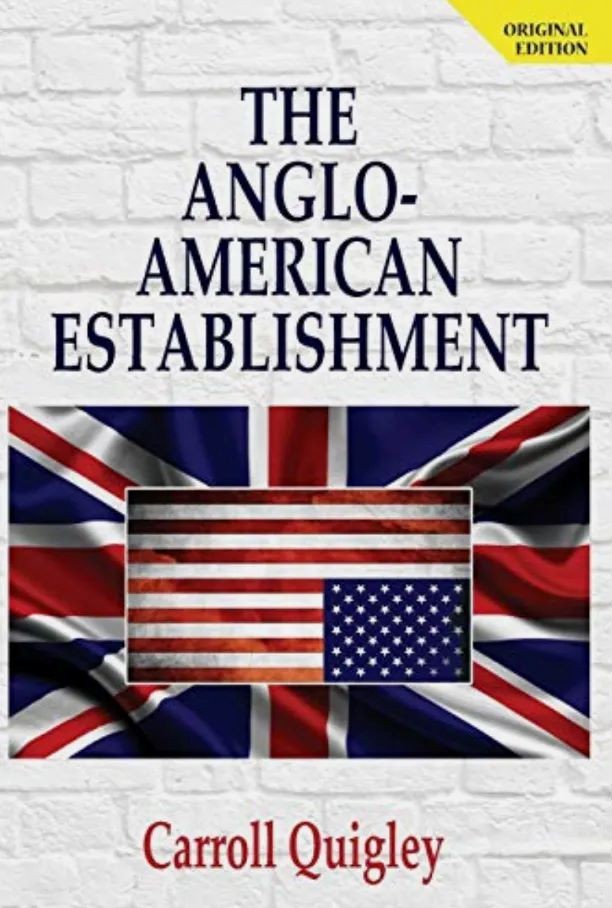
In writing Hidden History, Docherty and McGregor referenced two books of Professor Carroll Quigley, Tragedy and Hope which was for a long time suppressed and The Anglo-American Establishment which wasn’t published in Quigley’s lifetime because he believed to do so would have endangered his life. Quigley had an immense amount of privileged access to write Tragedy and Hope, so he had been regarded by the elites as ‘on side’ and, by his own admission, he was - in that he agreed with their aims but, crucially, not their methods or their secrecy.
Hidden History, first published in 2013, is an astonishing, revelatory read which completely overturns our understanding of the origins of the First World War and there is no better description of it I can give than to quote the opening paragraph of the Introduction.
THE HISTORY OF THE FIRST World War is a deliberately concocted lie. Not the sacrifice, the heroism, the horrendous waste of life or the misery that followed. No, these were very real, but the truth of how it all began and how it was unnecessarily and deliberately prolonged beyond 1915 has been successfully covered up for a century. A carefully falsified history was created to conceal the fact that Britain, not Germany, was responsible for the war. Had the truth become widely known after 1918, the consequences for the British Establishment would have been cataclysmic.
It is generally accepted that the seeds of the Second War were sown in the Treaty of Versailles. Germany signed it and admitted to war-guilt under great duress; the Royal Navy blockaded its ports for months with the result that its population was being starved. The Germans were told that if they did not sign the treaty, invasion would follow and Germany, so recently put together by Bismarck, would be broken up. After the humiliation of Versailles, all it took was the emergence of a potent political force in the 1920s and 30s.
We know from the work of Professor Anthony Sutton in his Wall Street Trilogy, American financial and industrial interests facilitated the Bolshevik Revolution, the creation of the USSR and the rise of both Mussolini and Hitler. Wall Street bankers and industrialists saw authoritarian government as being very much to their advantage in terms of profit and power. For example, Standard Oil was in bed with I G Farben with the production of oil from coal and the creation of synthetic rubber and ITT owned 29% of the German aircraft manufacturer Focke-Wulf.
Following on from Hidden History, Doctor Jim McGregor has recently had published, this time in cooperation with Doctor John O’Dowd, Two World Wars and Hitler, Anglo-American Money, Foreign Agents and Geopolitics which I am currently working my way through. The book further draws on Quigley and Sutton but also brings in Doctor Guido Preparata’s work, Conjuring Hitler: How Great Britain and America created the Third Reich. There is a certain amount of overlap with Hidden history at the beginning with an expansion of some aspects. I was intending to finish it before writing anything on this topic, but something came to my attention which was little short of stunning: It appears that the Munich Agreement (‘Peace in Our Time’) of September 1938, with Prime Minister Neville Chamberlain waving his bit of paper at the foot of aircraft steps, hid something far more nefarious, far more sensational, which had been going on.
For this revelation I must acknowledge the work of Substacker Kit Klarenberg towards whom I tip my hat. What Klarenberg has shed light on are the Dirksen Papers, the communications and notes of Herbert von Dirksen who was Nazi Germany’s Ambassador to Britain appointed in April 1938. He was a committed antisemite and Pole-hater who looked forward to the erasure of Poland. He was also a fluent English speaker and because of this and his aristocratic manners he was thought of as the acceptable face of Germany both by some members of the British establishment and some members of the public.
Von Dirksen survived the Second World War and publish an official memoir of his diplomatic career in 1950, but far more revealing is a two-volume record released by the Soviet Union’s Foreign Language Publishing House. They contain private communications to and from von Dirksen along with some diary entries and memos which were never meant to be publicly available. All were retrieved from Gröditzberg, von Dirksen’s castle, where he spent most of the war. They have not been used by official historians, and the reasons why must be obvious given what they reveal. They would no doubt claim that there is a whiff of desinformatsiya about them.
So, what had happened? From Britain’s perspective, the Munich Agreement was intended to be the start of a wider process that would lead to a World political partnership between the British Empire and Germany. The Federation of British Industry (FBI, now the CBI) had been in contact with its German equivalent, Reichsgruppe Industrie (RI). They had agreed on co-operation and looked forward jointly to formal negotiations which would lead to an Anglo-German economic integration. They met in London in November 1938 and scheduled a further conference in Düsseldorf for March 1939. On the same day Kristallnacht blew up, but this was no deterrent to continued meetings between FBI and RI representatives. The following month an agreement for an Anglo-German coal cartel was signed.
In March 1939 FBI representatives left for the meeting in Düsseldorf with the encouragement the Lord President of the Council Walter Runciman in their ears. Runciman, an appeaser, had been the architect of the handover of the Sudetenland to Germany agreed to in Munich. As the FBI delegates were enjoying Nazi hospitality, the Czechoslovak President Emil Hacha was being strong-armed into accepting the Wehrmacht in what remained of his country while Hitler proclaimed the Protectorate of Bohemia and Moravia. In August, just the month before the outbreak of the war, FBI representatives secretly met Hermann Goering to seal an agreement while British government back-channels made a formal offer of wide-ranging co-operation with Nazi Germany. You can draw your own conclusions about where that might have led and whether or not there is any bearing on Britain’s post-war European policy.
If you want to read more, you can follow this link to Kit Klarenberg’s Substack.
It’s an astonishing story which has never been told but, when one thinks about it, it is entirely in keeping with the overall aims of British foreign policy since Victorian times. It falls in with the Great Game, preventing Russian access to the Indian Ocean and preventing an economic co-operation between the rising power of Germany and Russia which would inevitably dominate the Eurasian land mass. Whoever dominates the Eurasian land mass will dominate the World. And that would be the end of the Ruskin/Rhodes/Milner Anglo-American dream of permanent World domination. It is the same geo-political imperative that informs attitudes to Russia, the Ukraine war and peripheral events right now (Nordstream?). Germany and Russia must be kept apart at all costs and, above all, kept weakened.
To the those playing this game, our ‘elites’, we the people are mere pawns, cannon fodder. We don’t matter at all in the grand scheme of things, and we never have. They demonstrated that in the Second Boer War and in the two World Wars. They will always prioritise their own selfish interests in the grand oligarchical battle of trade routes and resources in which they are engaged. They are still at it as we have recently seen with the government super-injunction covering up the import of 24,000 Afghan men and their families. Our ‘democracy’ is a sham, and it has been at least since the heyday of Milner’s kindergarten.
The English novelist Robert Harris first tasted success with ‘Fatherland’ which he set in an imagined Nazi Germany after it had won the Second World War and covered up the Final Solution. He more recently penned ‘Munich’ around the appeasement story which he wrote without, it seems, knowing anything about the Dirksen papers. There is surely something here for him to get his teeth into. It would make a fantastic tale.
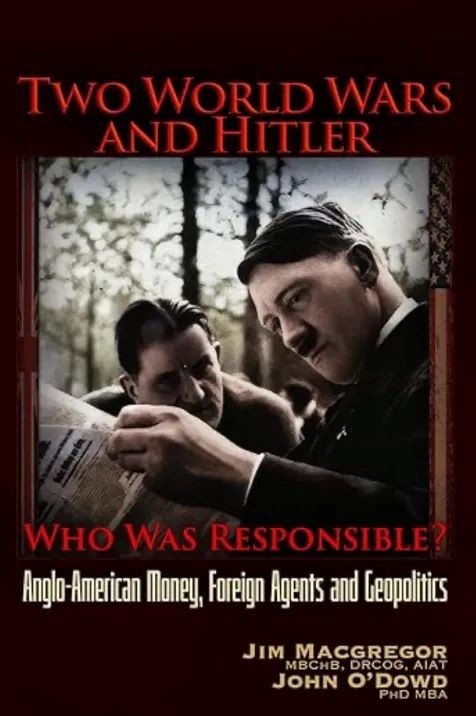
https://iainhunter.substack.com/